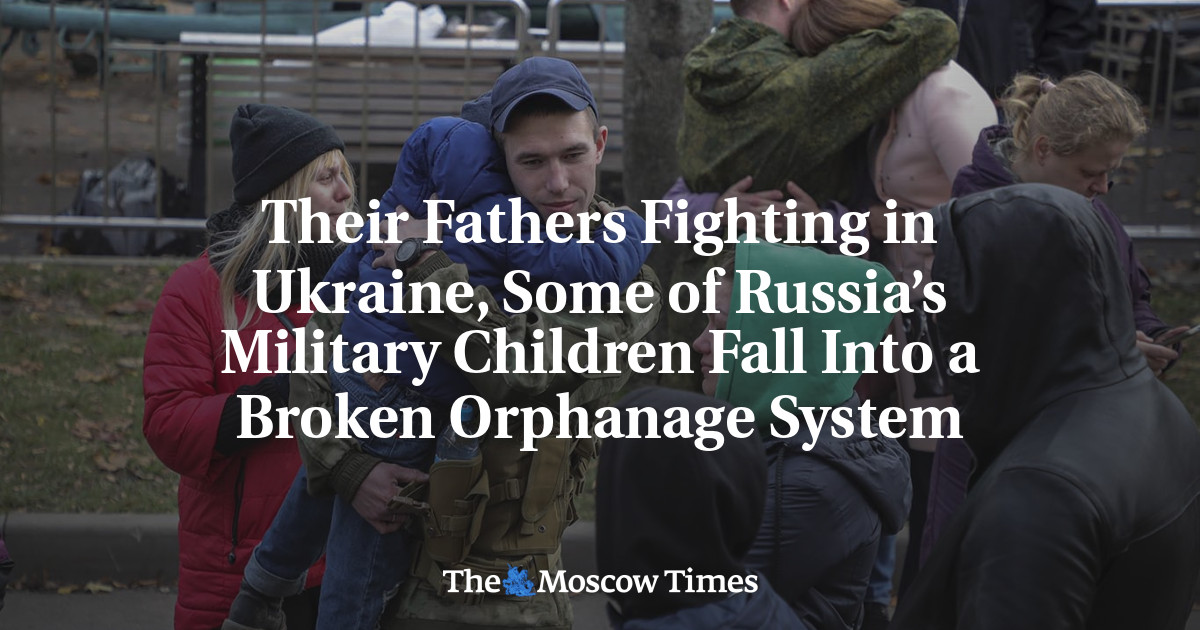
Their Fathers Fighting in Ukraine, Some of Russia’s Military Children Fall Into a Broken Orphanage System
How did your country report this? Share your view in the comments.
Diverging Reports Breakdown
Their Fathers Fighting in Ukraine, Some of Russia’s Military Children Fall Into a Broken Orphanage System
Russia’s children’s rights commissioner Maria Lvova-Belova said she has given “particular attention” to families of men fighting in Ukraine. But accounts from regional ombudspersons indicate otherwise. They reveal families left in poverty, children shuffled between relatives and institutions and widows navigating a bureaucracy that often strips them of support. Russian orphanages are notorious for their poor conditions, while reports of physical, psychological and sexual abuse continue to surface.. In the Altai region, dozens of soldiers’ families have now been formally registered with municipal juvenile affairs commissions, the local children’s ombudsman claimed. In St. Petersburg, a man accused of abusing children was able to escape prison by signing a military contract and being sent to fight in Ukraine; he has since gone back to the front. “This story clearly shows that ‘veteran privileges’ also extend to their supposed unconditional right to children,” historian Dmitry Dubrovsky told The Moscow Times.
In the Altai region, dozens of soldiers’ families have now been formally registered with municipal juvenile affairs commissions, the local children’s ombudsman claimed — another indication that military service is pushing more families into crisis. Russian orphanages are notorious for their poor conditions. Children often share everything except underwear, while reports of physical, psychological and sexual abuse continue to surface. Some abusers face prosecution, while others avoid punishment altogether. In St. Petersburg, a man accused of abusing children was able to escape prison by signing a military contract and being sent to fight in Ukraine. Once they leave these institutions at 18, many orphans are unprepared for adult life. They have not been taught how to pay bills or do laundry, and few possess personal belongings to take with them. In the Vladimir region, custody of one boy was transferred from his grandmother, who had raised him since his mother lost parental rights in 2018, to his father, a soldier who had been absent for years. The father had enlisted directly from prison and fought under contract in Ukraine. When he returned home at the end of his contract in 2023, he was granted full custody despite having no history of supporting the child. He has since gone back to the front. “This story clearly shows that ‘veteran privileges’ also extend to their supposed unconditional right to children,” historian Dmitry Dubrovsky told The Moscow Times. “A ‘veteran’ can demand almost anything and usually gets it, even if it is clearly not in the child’s best interest — but in reality, Russia does very little to protect those interests. “Under the pretense of so-called ‘traditional values,’ children are viewed as ‘property’ belonging first and foremost to the father and mother,” he continued. “So this ‘property’ is simply returned to its ‘owner,’ with no real concern for what happens to the child afterward.”
Russia’s children’s rights commissioner Maria Lvova-Belova is wanted on war crimes charges by the International Criminal Court for the forced deportations of Ukrainian children. Alexander Nemenov / AFP
In the Jewish autonomous region, a small, sparsely populated wedge of Russia’s Far East, the local children’s ombudsman recounted the case of a soldier’s mother raising a child alone in a dilapidated former dormitory. The building’s shared plumbing was broken, and the upstairs neighbor, a heavy drinker, posed a daily nuisance. After police and the building’s management company failed to intervene, she turned to the ombudsman. “An authoritarian regime doesn’t automatically mean ‘well-managed’,” Dubrovsky added. “‘Misrule,’ or simply put, chaos, also characterizes ideological campaigns like the glorification of so-called ‘heroic warriors’.” Researchers in Russia have published separate studies on the psychological toll borne by soldiers’ families. In addition to the stress and anxiety experienced by children, psychologists also note families’ fear of their fathers and husbands returning from the war with PTSD — “fear about possible mental changes and the consequences they might bring after coming home.” In some cases, child ombudsmen try to bring soldiers back from the front to care for their children. Families in at least three regions have filed formal complaints asking to bring fathers home from the front line, The Moscow Times has calculated.
